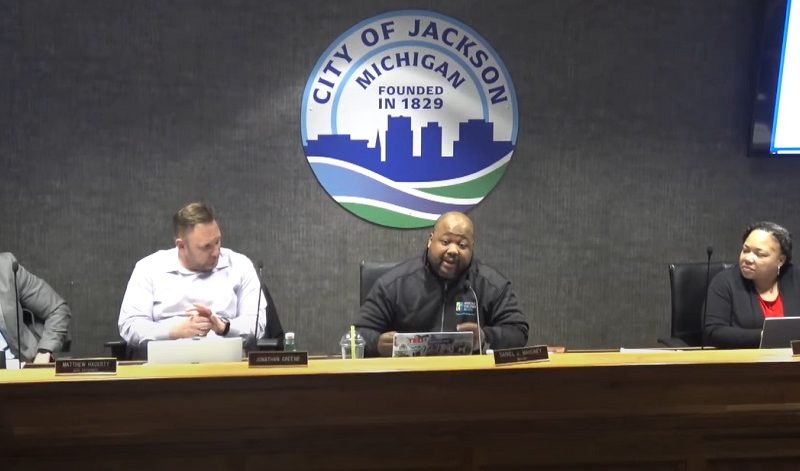Lansing, Mich. — In a dramatic turn of events, the Jackson City Council voted unanimously on Wednesday night to repeal its resolution to implement parking meters downtown. The decision came after overwhelming criticism from local business owners and residents, many of whom voiced their opposition at a special council meeting earlier that evening.
The parking meter proposal, which was set to take effect on July 1, was intended to generate revenue for the maintenance of parking spaces in the city’s downtown area. The plan would have installed meters throughout the city’s business district, transferring the financial responsibility for parking from business owners to the individuals using the spaces. However, the controversial plan quickly garnered resistance from both residents and local entrepreneurs, leading to a temporary halt on its implementation just days ago.
During the meeting, a number of business owners spoke out against the plan, arguing that metered parking would harm the downtown area’s economy. Brad Brelinski, co-owner of the law firm Curtis, Curtis & Brelinski, P.C., pointed out that Jackson’s size and demographics were vastly different from larger cities like Detroit, Ann Arbor, and Grand Rapids, which had been cited by the city as examples for the parking meter system.
“Respectfully, we are not those cities,” Brelinski told the council. “Detroit, Grand Rapids, and Ann Arbor are much larger cities. Jackson has about 30,000 people, and there are smaller cities like Port Huron and Marquette that do not have metered parking.”
Brelinski also emphasized that cities comparable to Jackson often provide free parking to encourage local business growth. He referenced several smaller cities, including Wyandotte and Mount Pleasant, that maintain meterless parking systems, underscoring that the move to install meters was out of step with what similar-sized cities were doing.
Another vocal critic, Laura Davenport, owner of the downtown dessert shop Blue Julep, expressed concern about the impact the meters would have on her business. Davenport shared that many of her customers had already told her they would not pay to park just to purchase baked goods, a sentiment echoed by other local business owners.
“I’ve had so many customers tell me that they will not pay a parking meter to run into my shop to purchase baked goods,” Davenport said during the meeting. “I do feel that there is another option that just needs to be explored.”
The meeting concluded with a moment of reflection from Jackson Mayor Daniel Mahoney, who admitted that the decision to implement parking meters may have been a misstep. Mahoney acknowledged the strong opposition from both residents and business owners, noting that many preferred an alternative funding model, such as assessments, over the metered parking proposal.
“What I’m understanding is [business owners] would rather pay an assessment than for us to have that fee shared across our entire community,” Mahoney said. “Citizens and business owners alike are saying, ‘This isn’t what we want.’”
In response to the backlash, Mayor Mahoney proposed creating a task force made up of city officials to explore other potential solutions, including reevaluating the city’s assessment system and parking zoning ordinances. Councilmember Conner Wood also suggested investigating how parking minimums set by the city’s zoning ordinances could be contributing to the issue.
The council then proceeded to vote on the motion to rescind the parking meter plan. The decision passed unanimously, effectively reversing the resolution passed earlier in the month.
With the repeal of the parking meter plan, Jackson’s city leadership will now focus on finding alternative methods to support downtown parking maintenance without putting undue financial strain on local businesses. This reversal marks a significant shift in the city’s approach, reflecting the power of community feedback in shaping local policy decisions.












